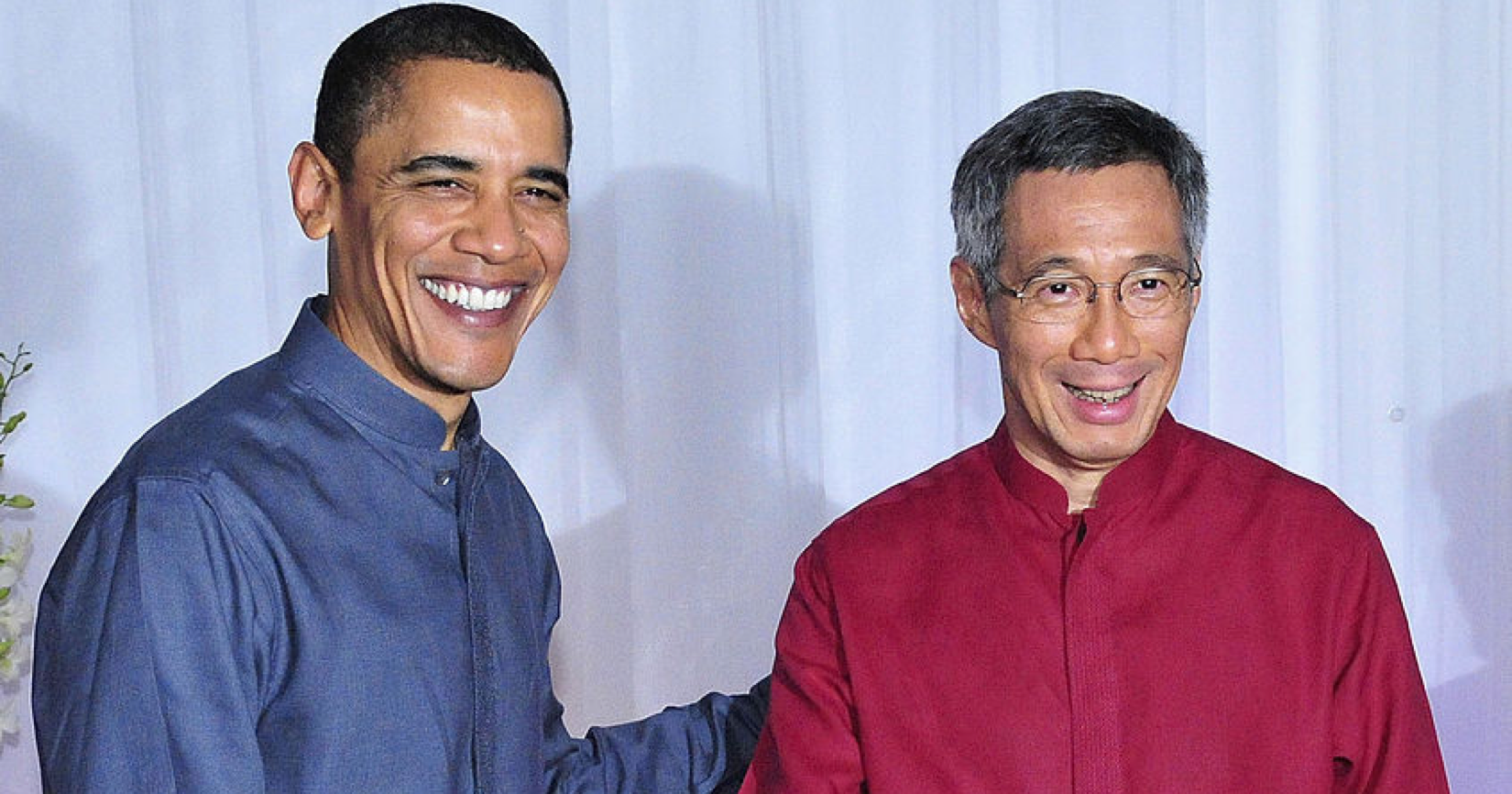Barack Obama, 44th President of the United States, has released the first book of his memoirs.
A Promised Land is the first in a planned two-part series covering Obama's time in the White House.
Singaporeans may be interested to know what Obama thought during his visit to Singapore in 2009 for the 17th Asia-Pacific Economic Cooperation (APEC) Economic Leaders' Meeting, which was hosted here.
This was Obama's first visit to Asia as president, after a prior stop in Tokyo, Japan the day before.
Alienating rest of ASEAN because of Myanmar didn't make sense
In his book, Obama recalled a possible controversy over meeting Thein Sein, then-prime minister of Myanmar.
"Myanmar, one of ASEAN's members, had been ruled for more than forty years by a brutal, repressive military junta, and both Presidents Clinton and Bush had declined invitations to meet with the group so long as Myanmar was included."
However, Obama thought that "alienating nine Southeast Asian countries" to send a message of disapproval towards one "didn't make much sense".
He also pointed out that the U.S. still maintained friendly relations with other ASEAN countries that were "hardly paragons of democratic virtue", like Vietnam and Brunei.
"With Myanmar, the United States had comprehensive sanctions in place. Our best chance of influencing its government beyond that, we decided, would come from showing a willingness to talk."
Still remembered some Bahasa greetings
As it turned out, Obama's interaction with Thein Sein was minor and didn't cause much of a stir, but the other ASEAN leaders expressed enthusiasm for his administration's message of U.S. pivot to Asia.
Obama also noted that the Asian press highlighted his childhood ties to Southeast Asia, having spent a few years in Indonesia, and his ability to greet then-Indonesian President Susilo Bambang Yudhoyono in Bahasa.
However, he revealed he'd forgotten most of his knowledge of Bahasa beyond simple greetings and ordering off a menu, although Southeast Asia was still familiar to him.
Singapore is exceptional
But in Obama's eyes, Singapore was different.
With its wide boulevards, public gardens and high-rise office buildings, it was "hardly the tidy former British colony" he remembered from childhood.
He called Singapore one of the region's success stories even in the 1960s, becoming a centre for foreign investment thanks to a combination of "free-market policies, bureaucratic competence, minimal corruption, and notoriously stringent political and social control".
However, globalisation and broader growth in Asia had sent Singapore's economy "soaring even higher".
He remarked that with its restaurants and designer stores "packed with businessmen in suits and young people in the latest hip-hop fashion", the wealth on display rivalled that of New York or Los Angeles.
"In a sense, Singapore remained exceptional: Most of the other ASEAN countries still struggled with varying levels of entrenched poverty, just as their commitment to democracy and the rule of law remained wildly uneven."
Asian countries growing in stature
But beyond the superficial trappings of wealth, Obama noted a trend of how Asian countries were coming into their own, and becoming more confident.
"One thing they seemed to have in common, though, was a shift in how they imagined themselves.
The people I talked to -- whether heads of state, businesspeople, or human rights activists -- remained respectful of American power. But they no longer viewed the West as the center of the world, with their own countries inalterably cast as bit players.
Instead, they considered themselves at least equal to their former colonizers, their dreams for their people no longer capped by geography or race."
Obama thought this was a good thing, that this was a fulfilment of America's promise to the world that if countries followed their lead and liberalised their economies, and hopefully their governments, they could also prosper.
Conservative critics' objection to his foreign policy
Obama viewed his job as U.S. president to make sure that they "played fair", that markets on both sides remained open and that development did not depend on exploiting workers or destroying the environment.
But he suspected that had something to do with the ire that his critics back home had aimed at his foreign policy.
"So long as they competed with us on a level playing field, I considered Southeast Asia's progress something for America to welcome, not fear.
I wonder now whether that's what conservative critics found so objectionable about my foreign policy, why something as minor as a bow to the Japanese emperor could trigger such rage: I didn't seem threatened, as they were, by the idea that the rest of the world was catching up to us."
A Promised Land is available for sale in bookstores.
We deliver more stories to you on LinkedIn
Top image from Getty Images.
If you like what you read, follow us on Facebook, Instagram, Twitter and Telegram to get the latest updates.
